Publications
Articles, publications, books, tools and multimedia features from the U.S. Institute of Peace provide the latest news, analysis, research findings, practitioner guides and reports, all related to the conflict zones and issues that are at the center of the Institute’s work to prevent and reduce violent conflict.
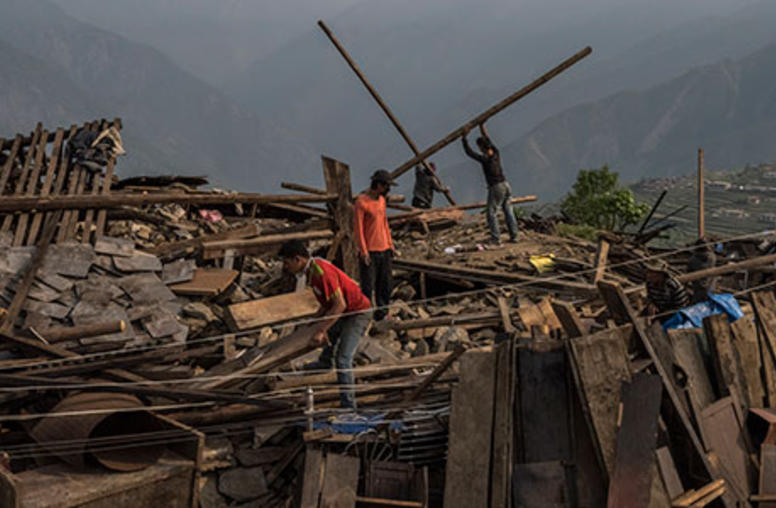
Rebuilding Nepal, from the Government Up
The 7.8 magnitude earthquake that wreaked havoc in Kathmandu has opened up an opportunity for the reform the country so desperately needs.
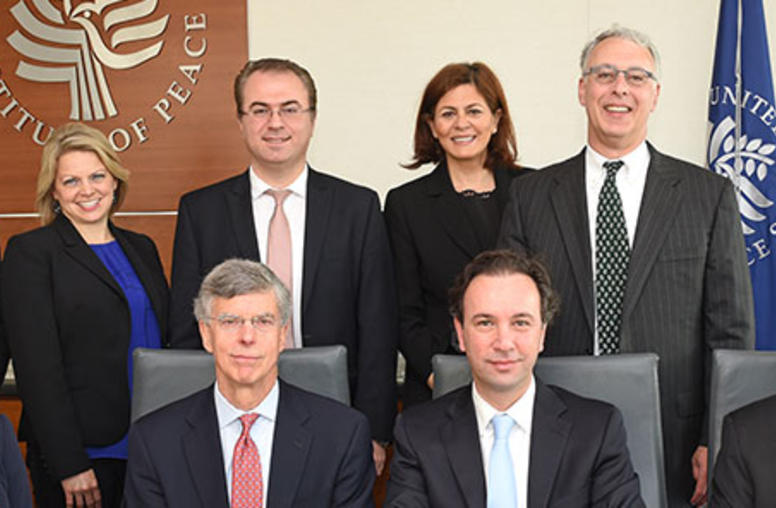
In Syria, Avoid ‘Sudden Collapse’ of Assad Regime, Opposition Leader Says
As the United Nations begins a third attempt in as many years to guide a peace process in Syria’s civil war, the new head of the country’s Western-backed opposition coalition says Syrians should work to avoid any “sudden collapse of the regime in Damascus.” While the government of President Bashar al-Assad appears to be weakening, “the only power that can force the regime to negotiate is Iran,” said the Syrian National Coalition’s president, Khaled Khoja.
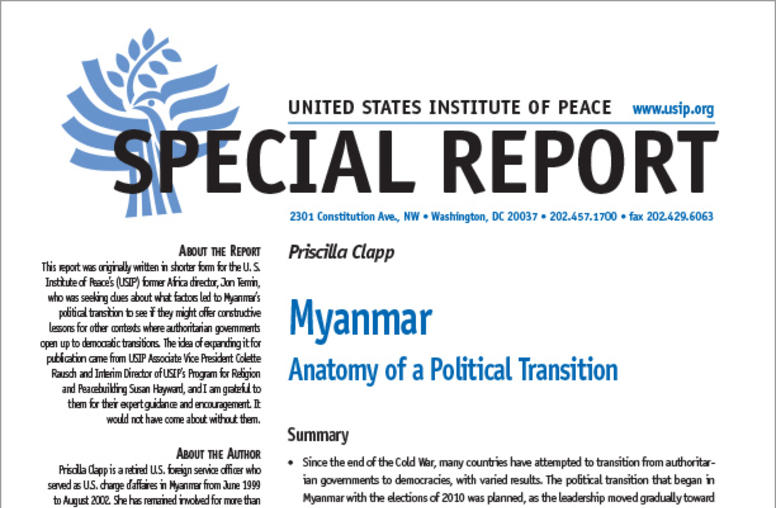
Myanmar
Many countries have attempted to transition from authoritarian governments to democracies, with many false starts. The political transition that began in Myanmar with the elections of 2010 was heavily planned by military leaders to gradually move toward democratization while retaining many of the authoritarian structures of the previous government during the transition. As Myanmar’s success has attracted great interest and support from the international community, this study analyzes the elem...
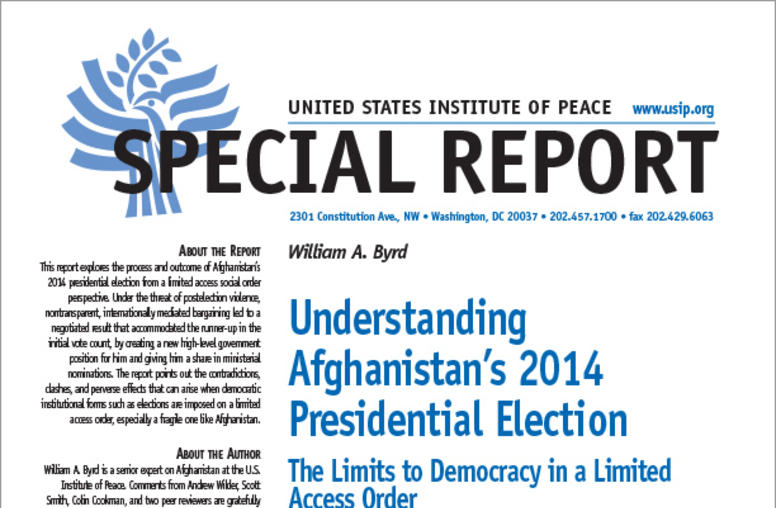
Understanding Afghanistan's 2014 Presidential Election
Afghanistan’s 2014 presidential election did lead to its first peaceful transfer of power. The process, however, was scarcely democratic. This report explores the election and its internationally mediated unity government outcome. Elections—when they can even be held in fragile and conflict-affected situations—tend to be more destabilizing than stabilizing. The overall lesson, as this report makes clear, points to certain critical needs for such countries: a better understanding of inherent i...
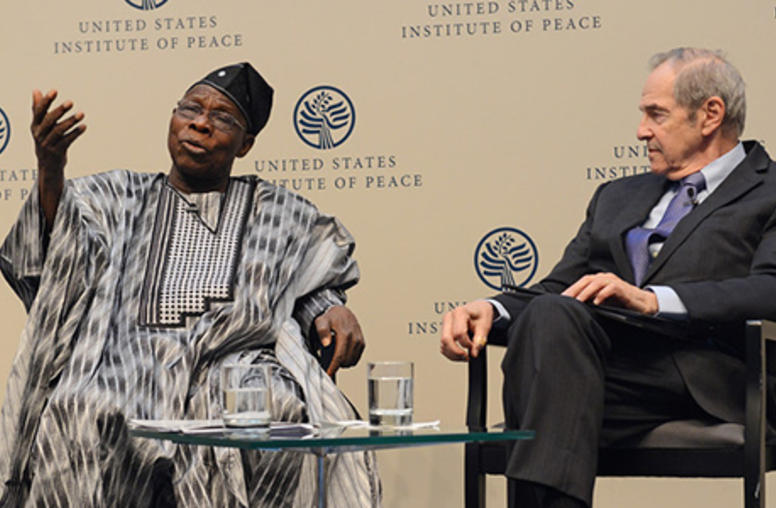
Nigerian Ex-President Obasanjo: Advance Africa’s Democracy with Exit Ramp for Leaders
Former Nigerian President Olusegun Obasanjo, who led his country’s return to civilian democratic government after decades of military rule, said Africa’s traditions of consultation with elders and forms of peer review can promote public accountability and provide a way for controversial leaders who are fearful of giving up power to step down in favor of a future of statesmanship.
Why Ukraine Matters and Why the U.S. Should Help
Last year’s unexpected Russian invasion and annexation of Crimea and its hybrid war in eastern Ukraine raise profound questions about the future of European security and the U.S. role in maintaining peace, says USIP Acting Executive Vice President Bill Taylor.
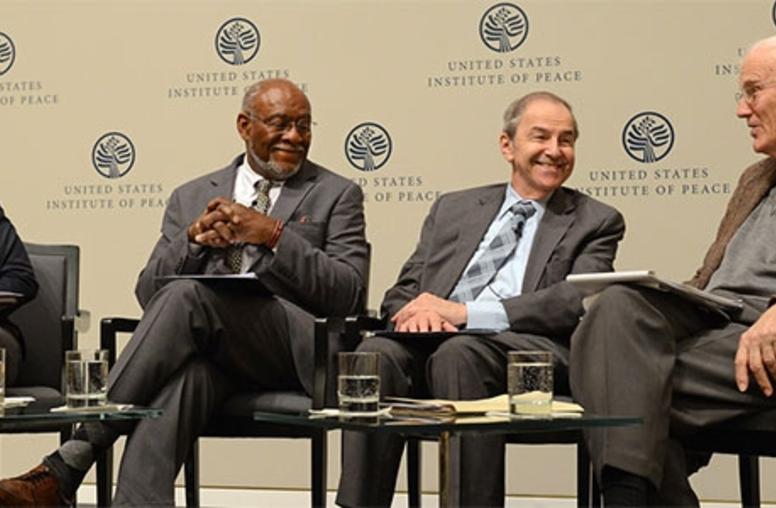
Democratic Vote Offers Nigeria a Chance to Rebuild, and to Lead Africa
Last week’s historic Nigerian election result—a first-ever, prospective peaceful transfer of power between civilian political opponents—could strengthen democratization efforts across Africa, according to analysts convened by the U.S. Institute of Peace. And it opens new prospects for the continent’s demographic and economic giant to strengthen governance, clean up corruption, and reverse the spread of the Boko Haram insurgency. The U.S. administration should show support for President-elect ...
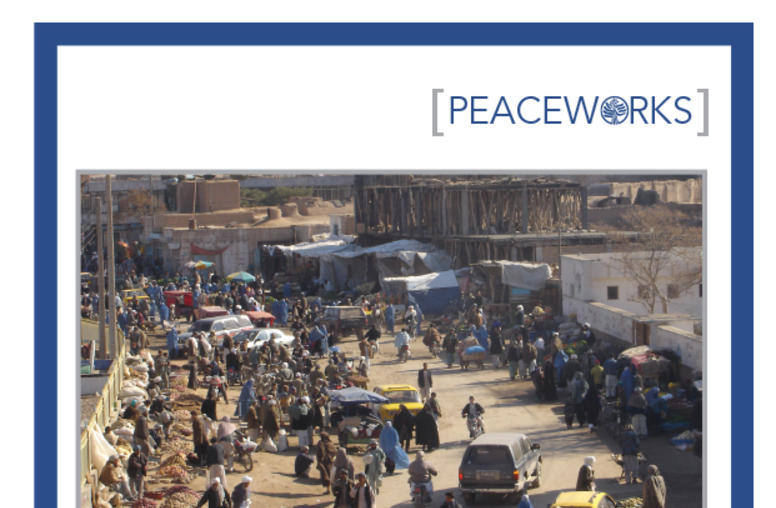
Political and Economic Dynamics of Herat
The city of Herat sits in Afghanistan’s most western province, on the border with Iran, and is significant on several counts. A major trading hub and the largest city in the region, it is in some respects an exemplar for the entire country. One the one hand it is a prevailing spirit of enterprise, on the other persistent insecurity and ad hoc urban development. How the new national unity government in Kabul unfolds will have significant implications for how Herat is able to meet the challenge...
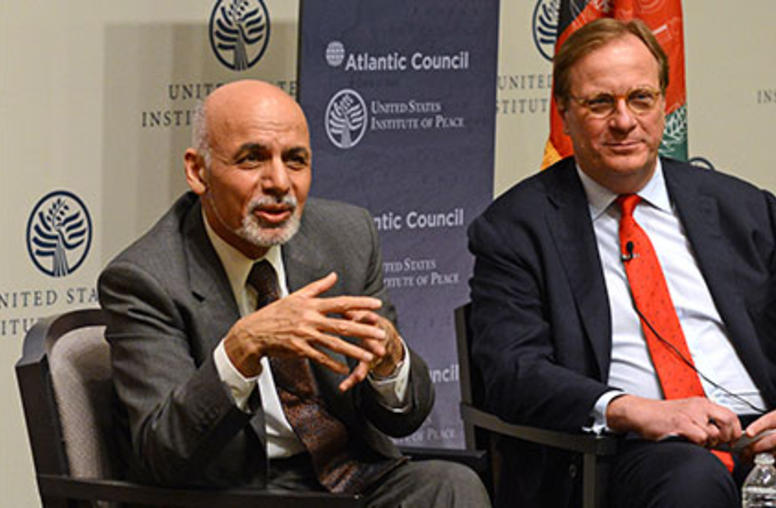
Afghan President: Pakistan Is Why Peace with Taliban Is Possible
Afghan President Ashraf Ghani has declared himself “cautiously optimistic” that he can get Pakistan’s help to negotiate a peaceful end to Afghanistan’s 13-year-old Taliban insurgency. Tonight he explained why.
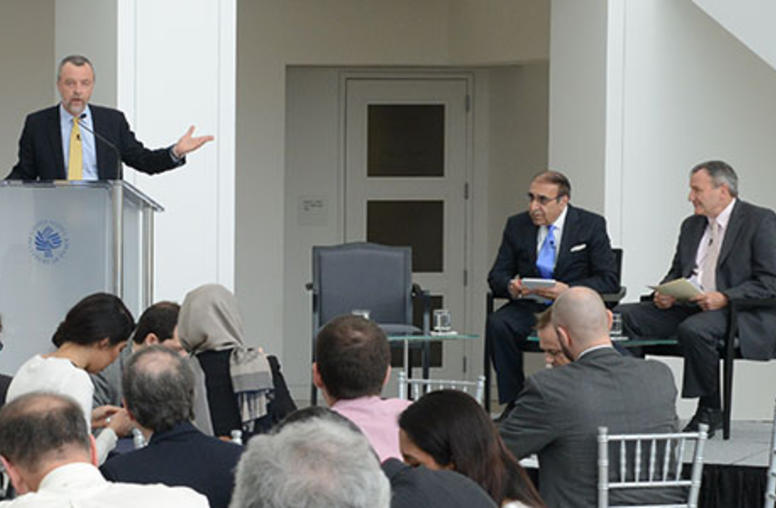
To Stabilize Afghanistan, U.S. and Partners Must Commit to the Long Haul
As Washington hosts Afghanistan’s new leaders this week, policy specialists and government officials have urged the United States and its allies to agree on long-term financial and security support to stabilize Afghanistan. The reformist administration of President Ashraf Ghani and his coalition partner, Chief Executive Officer Abdullah Abdullah, creates a fresh opportunity for governments and international institutions to strengthen the Afghan state and curtail the country’s decades-long war...